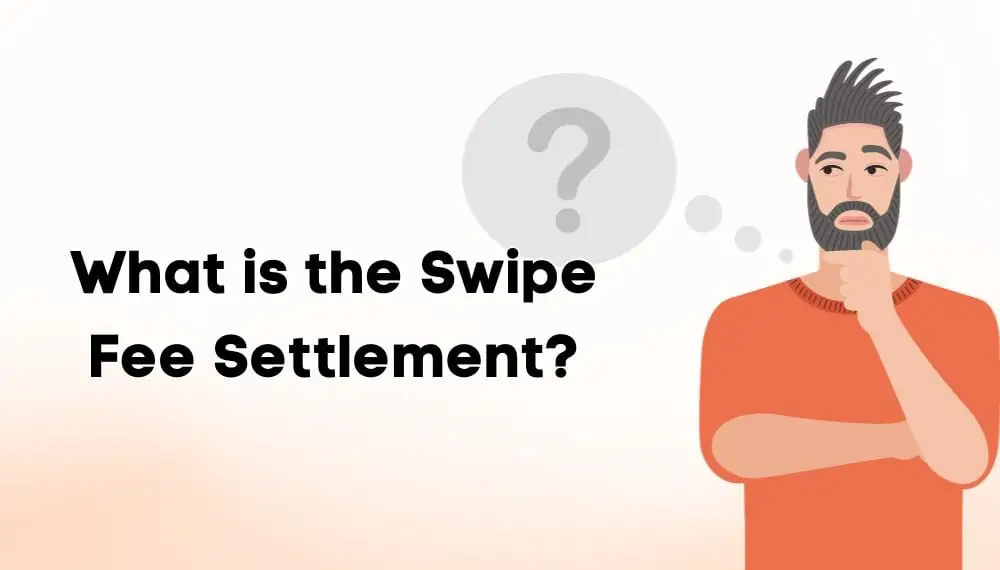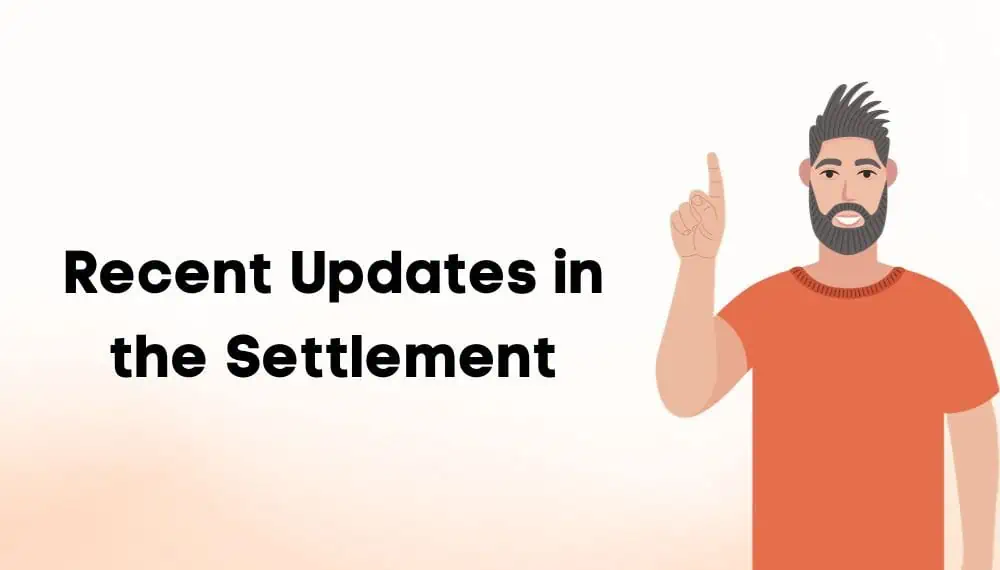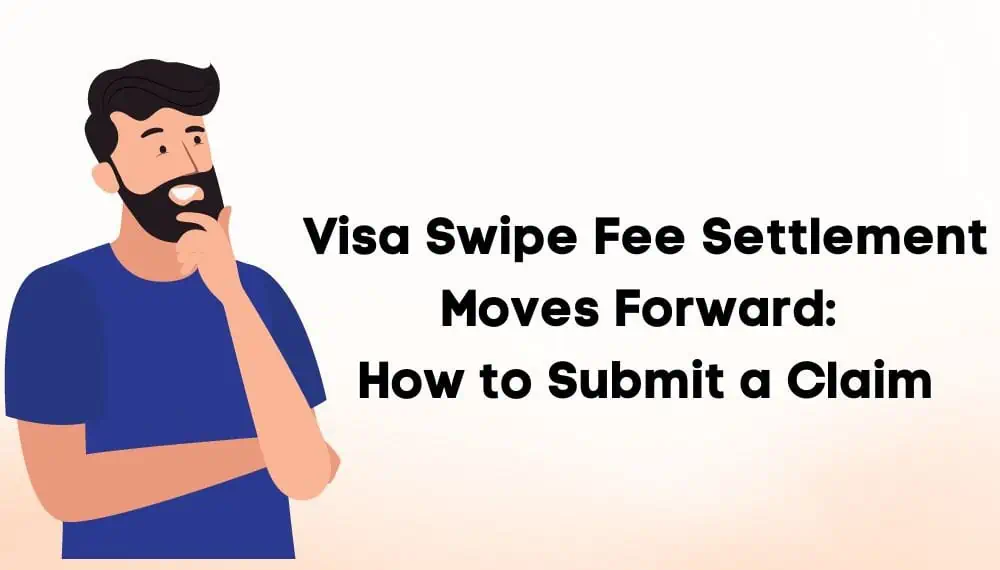A court of federal appeals in the US has recently approved a settlement between $5 billion and $6 billion in a class action lawsuit involving retailers. This legal case, called Payment Card Interchange Fee and Merchant Discount Antitrust Litigation, traces its origins back to 2005. The lawsuit claims that Visa and Mastercard violated laws by setting interchange fees at high levels.
The Federal Court of Appeals has emphasized the decision made by the US District Court to resolve the Swipe Fee Settlement and provide compensation to retailers and other plaintiffs. Finally, convenience store operators who are already part of this settlement will have the chance to receive compensation.
What is the Swipe Fee Settlement?

The Swipe Fee Settlement addresses the allegations that Visa and Mastercard overcharged retailers through interchange fees, also known as swipe fees. This fee is charged when customers use their credit cards for payments. It also involved claims that these credit card companies prevented retailers from guiding customers toward cost-effective methods.
Initially, in 2012, Visa, as well as Mastercard, accepted the $5.3 billion settlement. However, this deal was rejected by the Circuit court due to disputes between companies wanting forms of compensation. On February 22, 2019, the court ordered an astonishing approval of over $5 billion. The payment processing companies and other respondents agreed to $6.24 billion as part of the Swipe Fee Settlement agreement. This class action settlement was subject to the removal of specific merchants who chose to exclude themselves from the accommodation.
Each claim’s value is determined by factoring in the approximate interchange fees associated with merchant transactions made using either of the payment cards between January 1, 2004, and January 25, 2019. In December 2019, US District Judge Margo Brodie, in Brooklyn, approved the Swipe Fee Settlement following a $7.25 billion agreement that another judge invalidated for not compensating certain retailers. The final amount of the settlement was adjusted, which came to an approximate of $5.6 billion.
In this case, the law firm Arnold & Porter Kaye Scholer LLP and Holwell Shuster & Goldberg LLP represented Visa. Wharton & Garrison LLP, Weiss, Paul, and Rifkind represented Mastercard. The group of Merchants have their representation from Robins Kaplan LLP, Berger Montague PC, and Robbins Geller Rudman & Dowd LLP as class counsel.
Firms like the Class Action Fairness Group, Hagens Berman Sobol Shapiro LLP, and individual practitioners represented filling station merchants.
Recent Updates in the Settlement

A recent ruling from an appeals court has upheld a $5.6 billion Swipe Fee Settlement in a class action lawsuit involving over 12 million retailers. The lawsuit accused Visa Inc. And MasterCard Inc. Of engaging in practices by manipulating credit and debit card fees. The US Circuit Court in Manhattan dismissed objections raised about the certification process, which claimed confusion over who deserved compensation as concerns about the $523 million legal fees awarded to the retailer’s lawyers being excessive.
Among those objecting to the settlement were gas station operators affiliated with oil companies like Chevron and Shell. They argued they suffered losses when accepting Visa and MasterCard for gas sales. However, Circuit Judge Dennis Jacobs ruled that while their dispute might require resolution in court, it should not delay the distribution of payments to other class members.
The settlement addressed allegations that Visa and MasterCard had overcharged retailers through interchange fees (swipe fees) when customers used credit or debit cards. It also addressed concerns about restrictions on retailers directing customers towards cost payment methods.
Under the terms of the Swipe Fee Settlement, retailers who agreed to it would be barred from bringing any claims against Visa and MasterCard for 15 years after its finalization, with a five-year restriction beyond that. Steve Berman, one of the lawyers representing objectors to the Swipe Fee Settlement, expressed his commitment to protecting their interests as those of other franchisees in potential future legal actions.
The approval for the settlement was granted by Margo Brodie, a US District Judge in Brooklyn, in December 2019. This came after another judge ended the $7.25 billion agreement over concerns of some retailers being unfairly compensated than three years prior.
How Much Money Authorized Claimant Will Receive?
As part of the Swipe Fee Settlement agreement, Visa, Mastercard, and the Bank Defendants have collectively agreed to provide $5.54 billion to merchants who did not choose to exclude themselves from the Settlement Class. This fund will serve purposes: compensating Authorized Claimants who fall under Rule 23(b)(3) Settlement Class, covering costs and notices related to the settlement addressing tax obligations, on the settlement fund and associated expenses granting awards to Rule 23(b)(3) Class Plaintiffs for their representation on behalf of the class as covering attorneys fees and costs approved.
The amount each Authorized Claimant will receive from the Swipe Fee Settlement fund is subject to factors. These include the value of claims submitted costs related to administering and notifying the class members about the settlement, applicable taxes, attorneys fees, expenses, and money awards for Rule 23(b)(3) Class Plaintiffs. The amount you will be compensated for can be considered an estimate or approximation based on interchange fees charged by Visa and Mastercard for transactions made between merchants and their customers from January 1, 2004, through January 25, 2019. The court approved this settlement on December 13, 2019.
How will the Value of Your Claim be Determined?

The Class Administrator will determine the amount you can claim. They will analyze the information provided by both the Defendants and other sources to estimate the value of interchange fees associated with each Authorized Claimant member of the Rule 23(b)(3) Settlement Class. This estimation will consider your Visa and Mastercard transactions from January 1, 2004, to January 25, 2019. The data will be used to calculate interchange fees paid by the claimants.
If it’s impossible to estimate your Interchange Fees Paid due to data or if you disagree with the value determined by the Class Administrator, you may need to provide additional information supporting your claim. This could include details about your Interchange Fees Paid, merchant discount fees paid, your business merchant category code, or a description of your total Visa and Mastercard transaction or sales volume. Considering this information, an estimation of the Interchange Fees explicitly paid attributed to you will be made by the company.
To understand how your claim value was calculated, you may be given access to a code on a claims website provided by the Class Administrator. Alternatively, you can find this information on the Claim Form or at PaymentCardSettlement.
How Can You File the Claim?
Currently, the availability of Claim Forms for the Swipe Fee Settlement is still being determined. The exact timing for when the court will approve a Claim Form and determine its distribution to Class Members remains unknown. You will receive access to the Claim Form through mail or on the website via a helpline number where you can obtain further information.
Class members can submit their claims through the settlement website via email or by sending a physical paper Claim Form. Additionally, class members can choose to fill out a pre-registration form on www.PaymentCardSettlement.com, which may be helpful but optional. To check your status, you can also contact 1 800 625 6440.
Filing a Claim
By submitting a claim or choosing not to opt out of Rule 23(b)(3) Settlement Class, you agree to be bound by the terms stated in the Class Swipe Fee Settlement Agreement. This agreement includes releasing any claims you may have against Visa, Mastercard, and other defendants. Whether or not you decide to file a claim for payment is up to you.
Submitting a claim or deciding not to exclude yourself from the settlement class means that you will release any claims against the defendants and other parties mentioned in Paragraph 30 of the Class Settlement Agreement. These released claims encompass allegations and rules related to the litigation or those that could have been raised during this litigation concerning its subject matter. These released claims apply to both future occurrences up until five years after the court approved the settlement and resolution of all appeals.
Furthermore, these released claims also include any rules similar to those existing when preliminary approval of the Swipe Fee Settlement was granted. Future claims arising from regulations will be released if they occur within five years following court approval of this settlement and resolution of all appeals.
It is important to note that this release does not prevent you from pursuing relief or declaratory relief claims – that serve as prerequisites for relief claims made in specific other class actions.
It is advisable to read the Release document, which is written in terms. If you have any queries or concerns regarding the release and its implications, it is recommended that you seek guidance from Rule 23(b)(3) Class. You can also consult a lawyer at your expense.
Conclusion
The Swipe Fee Settlement for the class action lawsuit covers 12 million retailers. It’s important to note that not all retailers were part of this settlement because some cases had already been resolved or dismissed. The lawyers disagreed about which retailers should be included in the class action case and how much they should receive in compensation.
These disagreements resulted in motions, but most of them were rejected by the courts. The main priority is to begin distributing payments for claims as outlined in the Swipe Fee Settlement terms.
Frequently Asked Questions
What happens if I choose not to participate in the claim?
If you decide to exclude yourself from the Swipe Fee Settlement class under Rule 23(b)(3),
● You will not receive any compensation from this settlement.
● You will not be able to raise objections to the Rule 23(b)(3) Settlement.
Please note that the deadline to request exclusion from the Rule 23(b)(3) Settlement was July 23, 2019. It has already passed.Can I individually sue companies for these claims?
If you opt not to exclude yourself from the Rule 23(b)(3) Settlement Class, you cannot file lawsuits against the defendants seeking damages or injunctive relief.
By participating in this Class Swipe Fee Settlement Agreement, you have waived your right to initiate actions against any of the parties involved for claims related to the conduct covered by this agreement.How do I submit an objection regarding the settlement?
The deadline for submitting objections to the Rule 23(b)(3) Settlement has passed. It was on July 23, 2019. If you missed this deadline, you can no longer submit objections in the Court or Judge's office regarding complaints.
For any questions or concerns, please visit our settlement website. Reach out to our Class Administrator for assistance.Where can I find up-to-date information about this litigation?
To learn more about the Swipe Fee Settlement, you have various options;
1. look at the Superseding and Amended Class Settlement Agreement and all the attachments.
2. Visit www.PaymentCardSettlement.com to explore documents that can provide insight into the Swipe Fee Settlement.

